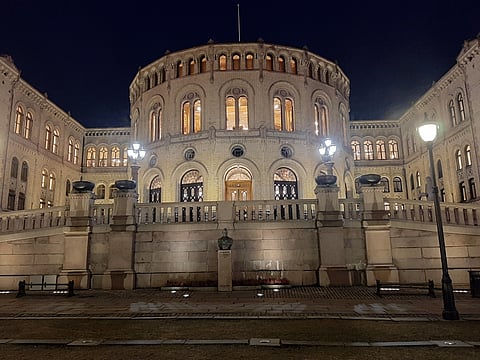

Norway’s parliamentary election ended with Prime Minister Jonas Gahr Støre’s Labour Party securing a second term in office, despite a powerful surge from the right-wing Progress Party. With nearly all votes counted, Labour and its coalition partners held enough seats to maintain control of parliament.
By Monday evening, 99.5 percent of ballots had been reported. The Labour Party increased its presence in the 169-seat Storting to 53 seats, up from 48 in the previous election.
The Progress Party made the biggest gains, raising its vote share by 12 percentage points and winning 48 seats, its strongest showing in years. The Conservative Party, once Labour’s main rival, fell sharply to 24 seats, losing 12 compared with 2021.
Together, the Progress and Conservative parties could have formed a majority. However, Labour’s allies, including the Centre Party, Socialist Left, and Greens, contributed 34 additional seats. This gave the governing bloc more than the 85 seats required for a majority.
Voter turnout was 76.6 percent, consistent with previous elections.
The election campaign highlighted sharp divisions over economic and foreign policy:
Wealth Tax: In place since the 1800s, the wealth tax became a defining issue. Labour and its allies defended it as vital for public services. Conservatives and the Progress Party argued for its abolition to encourage investment.
Immigration: The Progress Party pushed for stricter rules and faster deportations, while Labour called for a balanced policy that protects humanitarian values.
EU and Defense: Conservatives advocated full EU membership and greater defense spending. Labour maintained Norway’s current EEA arrangement, while Progress focused on strengthening border control and national sovereignty.
Energy Policy: Labour emphasized Norway’s role as a reliable energy supplier while facing pressure from coalition partners for stronger climate measures.
Foreign Aid: The Progress Party campaigned to halt funding to UNRWA and called for a tougher stance against Hamas, reflecting a sharper foreign policy shift.
Norway’s results reflect a wider European trend of populist and right-wing parties gaining influence. While Labour retained power, the Progress Party’s rise signals an increasingly competitive political landscape. Analysts warn that future elections could be closer if economic pressures and immigration concerns continue to dominate public debate.